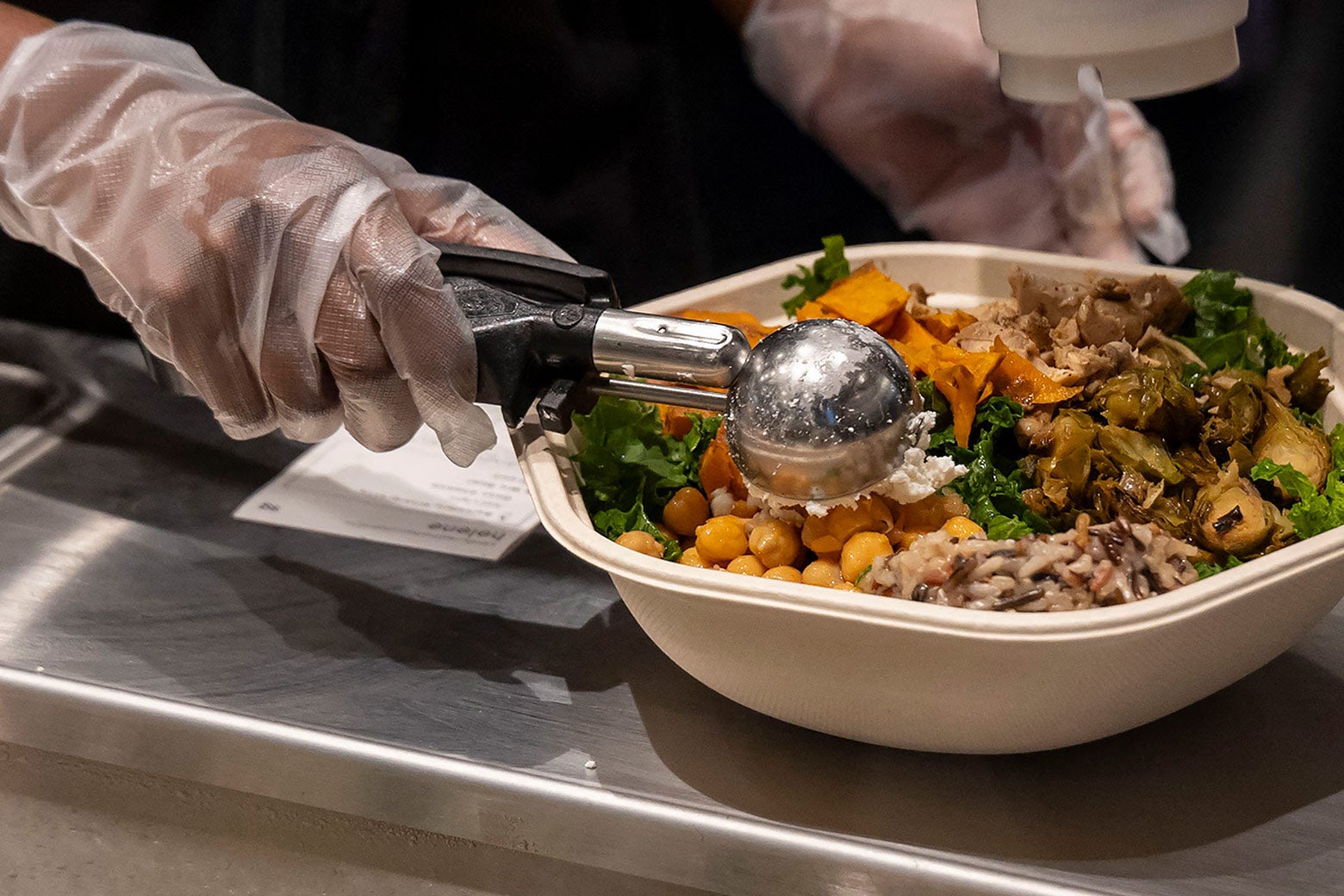Sign up for the Slatest to get the most insightful analysis, criticism, and advice out there, delivered to your inbox daily.
If you are a person who regularly lunches on $15 salads, you might have noticed it too: Sweetgreen has a new menu for January. Is the theme a novel kind of protein, perhaps? Another kind of dressing? A trendy vegetable? No, Sweetgreen is zealously touting the absence of an ingredient. There it is, on the order page for select locations, below images of bowls holding greens and chicken, in all caps: NO SEED OILS, NO SEED OILS, NO SEED OILS.
Seed oils, aka vegetable oils, are a big category and include things like canola oil and soybean oil. They show up in a lot of processed and fast foods and perhaps also in the food you cook at home, depending on how you cook it. This isn’t Sweetgreen’s first foray into seed-oil avoidance, but it is its loudest: In late 2023, the fast-casual salad chain announced that it would be switching to extra-virgin olive oil (not a seed oil) as its cooking oil for proteins, grains, and veggies. “We know there’s more work to do,” a Sweetgreen executive said in a statement at the time.
There sure was. Anti-seed-oil enthusiasts were left to carefully navigate the menu, which still included seed oils in many of its dressings. A blog called Seed Oil Scout (do you see the acronym? SOS!) shared a guide for how to “Sweetgreen without seed oil,” letting readers know which of the various options for toppings they could order. In discussions on Reddit, fans of the salad chain swapped tips on how to build a seed-oil-free bowl.
Well, good news for them: On Tuesday, Sweetgreen rolled out a seed-oil-free menu (though seed oils will remain in many of its offerings). “Our country is having a long-overdue conversation about food,” wrote Sweetgreen CEO Jonathan Neman, explaining that olive oil and avocado oil (also not a seed oil) offer key health benefits because they are processed differently from seed oils. “Fast food should mean fast access to quality food that’s both nourishing and sustainable,” the statement continued. “It can be done, and we’re committed to proving it.”
The trouble is, the “conversation” our country is having about food is being led by a madman. Though seed oils have many enemies, the most prominent might be Robert F. Kennedy Jr., who says that to consume them is to be “unknowingly poisoned.” A core component of the “Make America Healthy Again” movement seems to be that we should be removing things that sound scary, like fluoride from the water, or the process of pasteurization from the milk supply chain. The most generous read of this ethos is that RFK Jr. started his career as an environmental lawyer, working to stop corporations from dumping waste in inappropriate places, and that this zeal for detoxification has now gone off the rails. The real explanation might be that in his quest to “improve” the health of Americans, Kennedy, like the legions of online influencers who also promote an antagonism toward these oils, merely refuses to hear what actual experts have to say about them.
What experts have to say is this: Seed oils are commonly used in unhealthy foods because they are cheap and because they can be neutral in flavor. But, really, they can pop up in a lot of stuff, including, of course, salads. The problem with eating tons of seed oils isn’t the seed oils; it’s that such a diet might be heavy in junk food. Seed oils contain mostly unsaturated fat, the “good” kind of fat. “The claim that seed oils are ruining our health is especially rankling to nutrition scientists, who see them as a big step forward from butter and lard,” Alice Callahan, who holds a Ph.D. in nutrition, wrote in the New York Times. Although olive oil, one of the biggest alternatives to seed oil, is enjoying a moment in the spotlight as a health food, its unique positive qualities are possibly overblown. The gist of what we know is: It’s all just oil!
If you feel annoyed by the pandering Sweetgreen announcement and the new labels on certain offerings, I say get comfortable. Companies respond to what their customer base will buy, not the evidence. (I’ve learned this the hard way in my completely futile crusade against aluminum-free deodorant.) Honestly, I would bet that a lot of people simply don’t care about this stuff either way; Sweetgreen’s menu reflects this, too, in that the “no seed oil” options account for a tiny portion of the selections. Americans exist in alternative realities from one another. You can see it in everything—including our lunch.












:max_bytes(150000):strip_icc()/spider-man-movie-ranking-091924-9fa5cc8a119d44929aee13766c961ae2.jpg)
